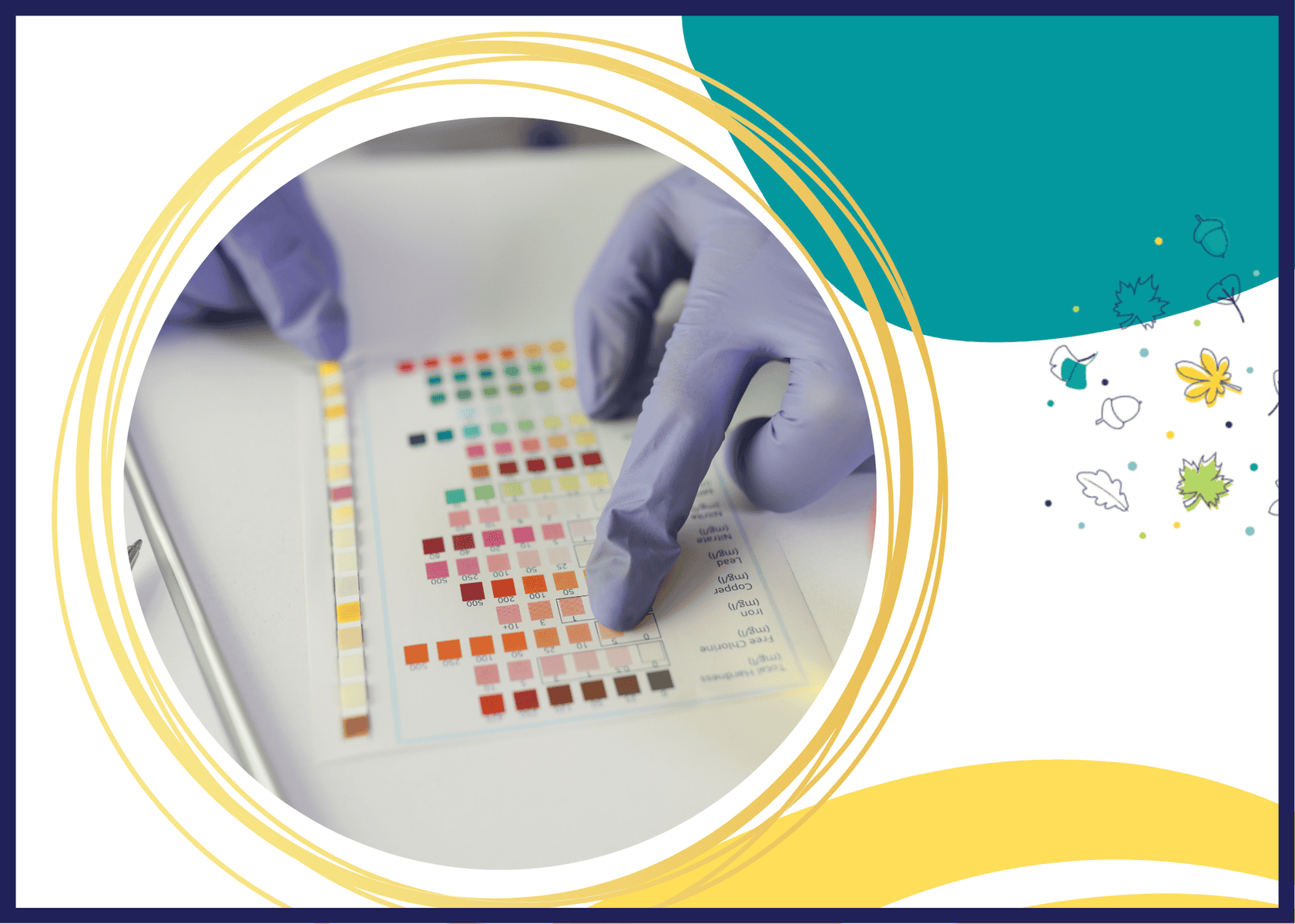Guest Blog: Uncovering the Root Causes of Mental Health Concerns in Kids
At Acorn Counselling, we take a whole-person approach to supporting children, youth, and families. This means looking at both the mind and body, as they are closely connected. When we meet with families, we often talk about medical history and may suggest checking in with family doctors or alternative health care providers to rule out any underlying medical concerns. We also know that blood tests can feel scary—especially for kids! In a recent conversation with Dr. Tara, we connected over our shared passion for child and adolescent health from a family-based perspective. She introduced us to some alternative health tests that can provide valuable insights without the stress of traditional bloodwork. In this guest blog, Dr. Tara shares her knowledge and passion to help families explore new ways to support happy, healthy kids.

Contributed by: Dr Tara Rawana, ND, CNP
For parents and caregivers, watching your child struggle with mental health challenges can be heart-wrenching. Anxiety, mood swings, focus issues, and emotional dysregulation are becoming increasingly common in children and teens. Therapy is often a fantastic option and, in addition to therapy, there’s growing research that highlights how the gut, nutrient status, and metabolic function play pivotal roles in mental health, opening doors to integrative health tools like the GI MAP and the Organic Acid Test (OAT).
My name is Dr. Tara Rawana, and I’m a naturopathic doctor at The Poppy Clinic in Burlington. Supporting youth mental health in my clinical practice is one of my passions. I also co-founded a company called All About Mental Empowerment, which provides mental health education in schools. We’ve worked with more than 80 schools and over 25,000 kids across the GTA to provide students with tools to build resilience, manage stress, and care for their mental health.
When I work with families in my private practice, my focus is to uncover the root cause of a child’s symptoms. In this blog, I’ll explain how advanced tests like the GI MAP and OAT can give us powerful insights into a child’s health, what we can learn from them, and, most importantly, how these findings can guide safe and effective treatment options.
Blood Test Alternatives: What Are the GI MAP and Organic Acid Tests?
The GI MAP (Gastrointestinal Microbial Assay Plus) and Organic Acid Test (OAT) are two diagnostic tools that dig deeper than standard bloodwork to uncover hidden imbalances in the body that could be contributing to mental health challenges. While blood tests are useful for identifying deficiencies like low iron or B12 (both of which are linked to mood and behaviour), they don’t always tell the whole story and are not always a great option for needle-phobic kids.
Here’s what makes these tests unique:
GI MAP
The GI MAP is a stool test that evaluates the health of the gut microbiome—the community of trillions of bacteria and other microorganisms that reside in the digestive tract. Since the gut is the primary producer of neurotransmitters like serotonin and dopamine, gut health can directly impact mental health.
This test looks for:
- Imbalances in gut bacteria (dysbiosis), which can disrupt neurotransmitter production.
- Pathogenic bacteria, parasites, or yeast, which can release toxins that affect brain function.
- Markers of inflammation, such as calprotectin, which signal gut lining damage.
- Digestive function, including enzyme production and fat absorption.
Studies have shown that dysbiosis can contribute to anxiety, depression, and behavioural challenges in kids (Cryan et al., 2020). Correcting gut imbalances through diet, probiotics, and antimicrobial herbs can help restore both physical and mental health.
Organic Acid Test (OAT)
The OAT is a urine test that measures organic acids—byproducts of metabolic processes in the body. These markers tell us about how a child’s body is functioning at a cellular level. The OAT provides insights into:
- Neurotransmitter production, including serotonin and dopamine pathways.
- Mitochondrial function, or how well cells are producing energy. Poor energy production can lead to mood swings and fatigue.
- Nutrient deficiencies, such as low B vitamins or antioxidants.
- Toxin exposure, including high oxalates or heavy metals, which can disrupt brain function.
For example, low serotonin markers may explain why a child feels anxious or struggles to sleep, while mitochondrial dysfunction may contribute to low energy and difficulty focusing (Kasai et al., 2020). By addressing these issues, we can target the root causes of their symptoms.
How I Use Test Results to Create Treatment Plans
Both the GI MAP and OAT provide actionable data that guide individualized treatment plans. Here’s how I use the results to help families in my clinical practice:
1. Supporting Neurotransmitter Production
The GI MAP and OAT can highlight issues with neurotransmitter production, which are crucial for regulating mood, focus, and emotional resilience. For example:
- Low serotonin markers may indicate the need for precursors like 5-HTP, dietary tryptophan, or gut-supportive probiotics to enhance serotonin production.
- Dopamine imbalances may be addressed through tyrosine supplementation, nutritional approaches, iron optimization, or adaptogenic herbs.
Research shows that improving neurotransmitter levels through nutrition and supplementation can have a direct impact on reducing anxiety, irritability, and focus issues (Morris & Maes, 2014).
2. Restoring Gut Health
If the GI MAP reveals dysbiosis or gut inflammation, the focus shifts to restoring a healthy gut microbiome. Treatment strategies may include:
- Probiotics and prebiotics: These help repopulate beneficial bacteria and create a balanced microbiome. Strains like Lactobacillus rhamnosus have been shown to reduce anxiety and improve mood.
- Antimicrobial herbs: These target and eliminate harmful bacteria, yeast, or parasites.
- Anti-inflammatory foods: Incorporating omega-3-rich foods and reducing processed foods can calm inflammation in the gut lining.
3. Enhancing Mitochondrial Function
The OAT provides a window into mitochondrial health—the tiny energy factories inside cells that power the brain. When mitochondria aren’t functioning well, the brain struggles to maintain focus, regulate emotions and handle stress.
To support mitochondrial function, treatments might include:
- CoQ10 supplementation, which boosts cellular energy.
- Magnesium and B vitamins, essential cofactors for energy production.
- Dietary changes, such as increasing healthy fats (e.g., avocados, nuts) to fuel mitochondria.
4. Addressing Nutrient Deficiencies
Both tests identify deficiencies in key nutrients needed for mental health. For instance:
- Low B vitamins can disrupt neurotransmitter pathways, leading to anxiety or irritability.
- Low zinc or magnesium levels can increase susceptibility to stress.
Based on these findings, I may recommend nutrient-rich foods (like leafy greens and pumpkin seeds) or targeted supplementation to correct deficiencies.
5. Detoxifying the Body
The OAT can also uncover signs of toxin build-up, such as high oxalates or heavy metals. These toxins interfere with brain function and may contribute to behavioural challenges or focus issues.
Detoxification protocols might include:
- Liver-supportive herbs like milk thistle or dandelion root.
- Glutathione supplementation, the body’s master antioxidant.
- Dietary adjustments to reduce exposure to processed foods and environmental toxins.
Empowering Families with Knowledge
Mental health is a complex puzzle, and every child’s situation is unique and so treatment approaches should be unique too. The GI MAP and OAT offer valuable pieces to that puzzle, helping me uncover hidden imbalances and create personalized treatment plans to support my patients.
If you are looking for integrative medical support for your child’s mental health, I’d love to chat. You can book a free meet and greet here: https://app.outsmartemr.com/online-booking/1306/DrTaraRawana or email us at hello@poppyclinic.com with any questions.
References
- Cryan, J. F., O’Riordan, K. J., Cowan, C. S., Sandhu, K. V., Bastiaanssen, T. F., Boehme, M., … & Dinan, T. G. (2020). The microbiota-gut-brain axis. Nature Reviews Gastroenterology & Hepatology, 17(3), 155-172.
- Kasai, S., Shimizu, S., Tatara, Y., Mizushima, T., & Tanaka, M. (2020). Mitochondrial dysfunction and mood disorders: A focus on serotonin and energy metabolism. Frontiers in Neuroscience, 14, 146.
- Morris, G., & Maes, M. (2014). Mitochondrial dysfunction and its role in mood disorders. Molecular Neurobiology, 49(1), 1–17.
- Hediger, M. L., England, L. J., Molloy, C. A., Yu, K. F., Manning-Courtney, P., & Mills, J. L. (2008). Elevated urinary oxalate in autistic children: A biomarker for dietary intervention. Autism Research, 1(4), 206–219
If you’d like to book an assessment with one of our mental health counsellors, please visit our booking page here.






